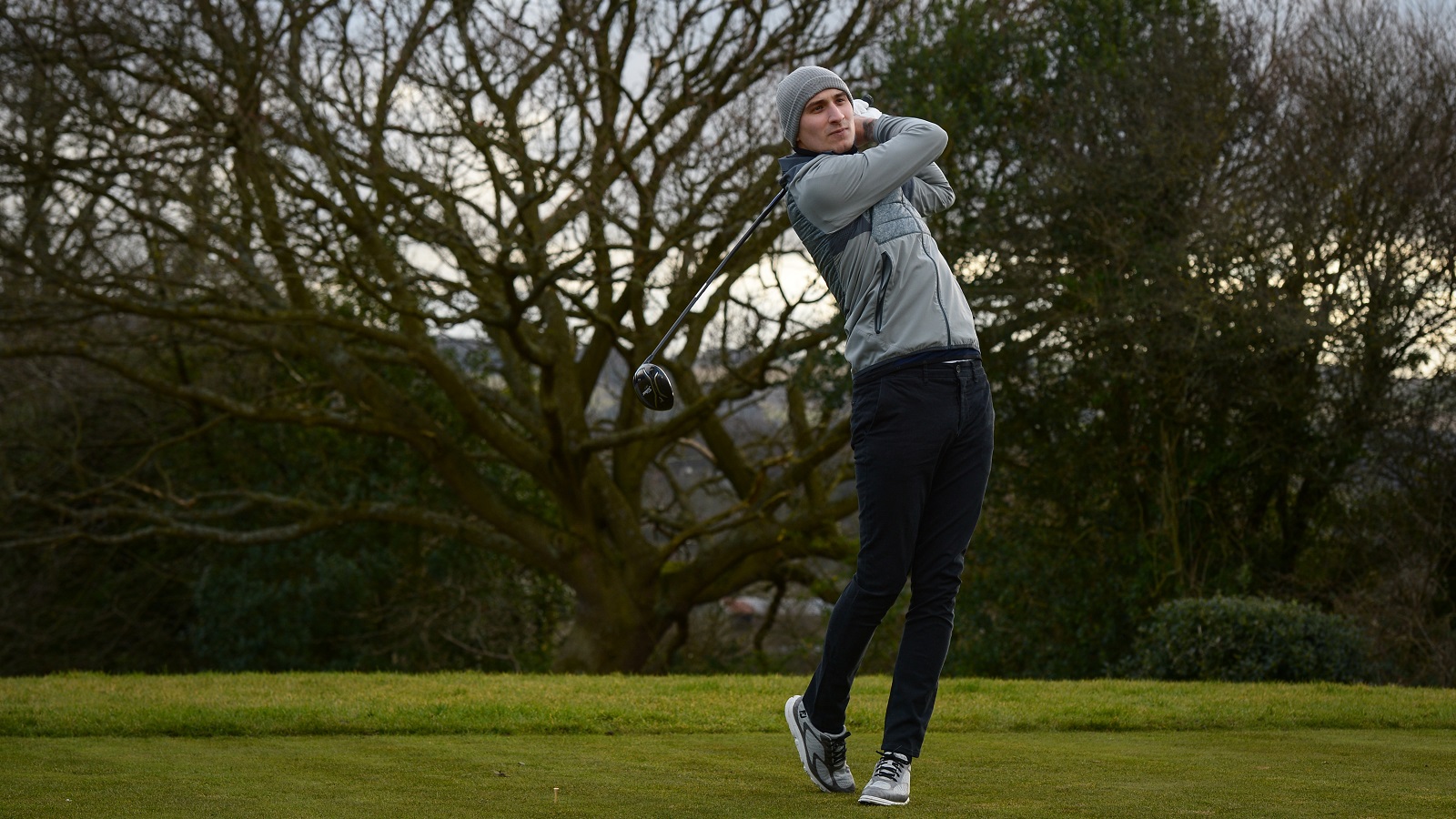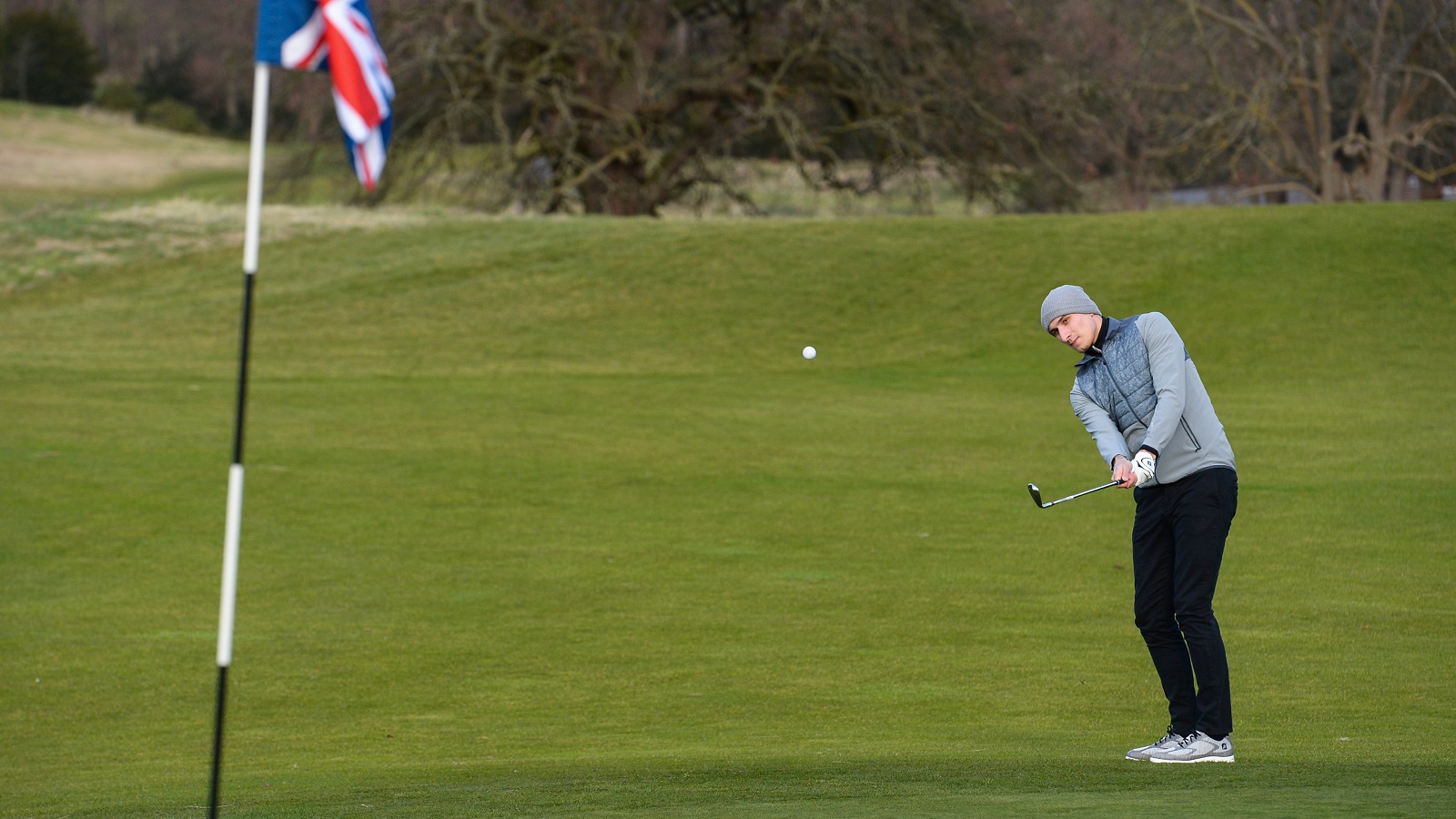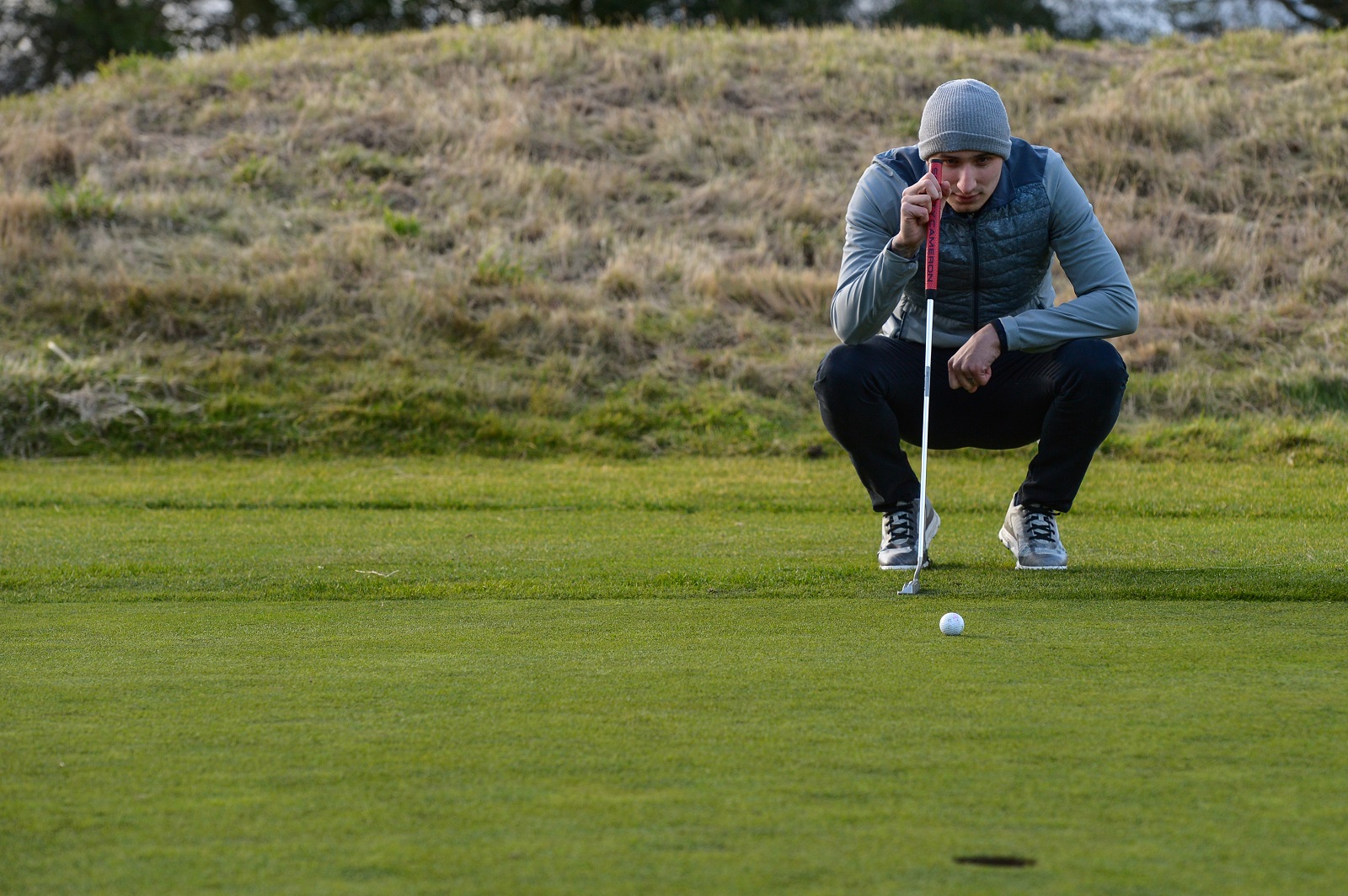Features
Jonjo Shelvey programme interview - in full
Written by Tom Easterby
A keen golfer for much of his life, Jonjo Shelvey took UNITED to Close House ahead of Sunday’s visit of Manchester United. There was plenty to talk about as the England international sat down for his first in-depth interview of 2018. It was published in this weekend’s programme, just before Shelvey put in a man-of-the-match display in the Magpies’ 1-0 win – and you can now read the full feature here…
Jonjo Shelvey doesn’t do many interviews. “I just try and avoid going and speaking to the press, to be honest with you,” he says. “I’ve never been one to do loads and loads of interviews anyway. People just sit there and hammer you all the time, and then they want an interview off you. To me, that just doesn’t add up – it just doesn’t work.
“It doesn’t bother me, I’d just rather not. After training, I’d rather go home and spend time with the family than do an interview.”
It is a shame, as Shelvey wastes few words. In Close House Golf Club’s busy bar area, he orders some coffees and sits down to discuss his fortnightly sessions with a psychologist.
“He bought me a little black notebook, and after training and games I’ll write three things down that I’ve done well and three things that I didn’t do well,” explains the 25-year-old. “I’ll take it to the golf as well and I’ll write after every hole – what club I’d hit and how I hit it, things like that. It helps, because you’ve got something to read back and something to learn from. I’ll keep doing it.
“He’s always on the other end of the phone and he’s always helping out. It doesn’t have to be a long meeting – it can take five or ten minutes sometimes – but he’s just there if I ever need to ring him and get things off my chest. Even if I’ve had a good game, he tells me to ring him and tell him what I’ve done well and didn’t do well. It makes you take a step back and look at things from another angle, and from other people’s perspectives.”
Shelvey, a private man, sought help in tweaking his mindset midway through last term. “It’s not just going to happen overnight. It’s a long process,” he adds, “and it’s one that you have to be dedicated to or it ain’t going to work.” He takes the notebook everywhere, packing it in his rucksack, and never forgets to write. “It’s second nature now. I just do it without even thinking. I’d never, ever think to myself ‘my book’s there, I’ve got to go and do it’. It’s straight out, do it and then back in the bag. No-one knows I’ve started doing that, but it’s not the end of the world if people know. Just don’t nick it.”
A playful grin spreads across Shelvey’s face, as it does many times during 40 minutes of conversation in which the midfielder covers plenty of ground, speaking freely about himself and the opinions others have of him. One such view is that he’s a gifted technician hamstrung by his temperament; tough to control, never far from trouble. That idea that has followed him for much of his career, fuelled by flashpoints – his run-in with Sir Alex Ferguson in 2012, a confrontation with a Swansea fan four years later, a flurry of red cards.
Does he feel a need to alter that perception? “Not really,” replies the six-cap England international. “I know who I am and the people close to me know who I am. Everyone I’ve ever played with hasn’t really had a bad word to say about me. It doesn’t really bother me. People have got this thing that I’m a hothead, but it is what it is. No matter how much you try and change it, as soon as people have got a perception of you, they stick to that.”
Shelvey knows certain incidents, such as his reaction to being substituted against the Swans last month, give credence to that notion, though he insists they are born of a will to win. “It’s just the backlash that you have to prepare yourself for,” he says, as the lattes arrive. “I normally just get on my phone straight after the game and phone my family. I’m not really bothered about what ex-players and people like that have got to say. They don’t know me, they don’t know what’s going on.
“I just brush it off. There’s more to life than football. There’s a lot more going on in the world than getting a red card, or if someone’s calling you immature or a liability. There’s a lot more going on in the world to worry about than someone you don’t even know who, if they see you in the street, would probably come up and ask for an autograph. That’s what makes you laugh. It doesn’t really bother me.”
In 2013 Shelvey, in a rare one-on-one, told The Guardian he was still trying to control his innate aggression. It is still in there, though he feels he is handling it better. “I think with me having alopecia, I’m always going to be an easy target for someone to say something to,” he says. “I’ve been called all sorts on the pitch, but I’m not the person to go and tell the referee or the manager.
“I’ve been called ‘disabled’, I’ve been called ‘cancer head’ on a football pitch. But I’m not one of those to sit there and report it – it’s just not the way I am. What goes on the football pitch, to me, stays on the football pitch, and then you shake hands at the end of the game.
“It would have to take something really, really bad to get me to properly lose my head – if it was something about my kids or something like that, do you know what I mean? But I feel like I’m doing well in terms of my aggression. I just think it all stems from wanting to win, and that’s what’s been instilled in me as a young boy.”
As a child, his resilience grew. He shaved his head at nine. Shelvey would walk round Romford, along the streets and in the shopping centres, knowing that the stares were hurting his sister and family as much as him. Football was a kind of escape, just as golf – the game he learned at six, that he plays in Portugal for two weeks each summer – is now.
Incredibly, this is Shelvey’s 11th season of senior football. His Charlton days, where he broke into the first team at 16, seem a lifetime ago. “Yeah, I’m finished now,” he jokes. Back then, he was fearless.
“I remember getting on the bus. I think it was my first away trip and I was making my debut against Barnsley. We were travelling up the day before. Deon Burton said to me, ‘young lad. Go and make the teas’. My dad said to me the day before, when I found out I was travelling, that the older lot will see you as a weak person. He said, ‘whatever they try and make you do, you don’t do it. You just tell them to **** off’.
“So I just said to him, ‘the day you’re better than me, I’ll make the teas for you’. He just looked at me. Everyone couldn’t believe I’d said it. He just looked at me and said, ‘fair enough’. I was a bit nervous, thinking ‘****, I could be getting a hiding here’…”
There are no dressing rooms to clean and no tea-making encounters for young players now, and Shelvey has seen the shift in culture he feels may have taken away the edge that is needed – the edge he had. He has seen documentaries, like No Hunger in Paradise on BT Sport, which have dealt with themes including fading desire in young players who get too much, too young. “I don’t agree with that,” he shakes his head. “If you’re good enough I think you should get what you deserve, but you’ve also got to not get carried away, keep progressing and keep that hunger. But obviously there’s the other argument that if you get all that, the hunger will fade.”
Joey Barton featured in that documentary, based on Michael Calvin’s acclaimed book. Shelvey listens to him. “I’ve read his book. It’s a very good book, on how he’s grown up and what he was like when he was breaking through. It’s a good read and every young player, if they get a chance, should have a read of it.” He is interested in the paths others have taken, and read Steven Gerrard’s and Craig Bellamy’s autobiographies while relaxing by the pool on holiday. “But I have to read princess books now,” he smiles. His two young daughters select much of his reading matter now.
He tends not to look back too often, but feels a sense of pride at how far he has come since that debut at Oakwell. “I remember texting my mum and dad the day I found out I was playing for Liverpool against Manchester United,” recalls Shelvey, who left the Valley for Anfield in 2010. “It was on Sky. I sent them a text, a long message, saying, ‘thank you for everything you’ve done for me in the past. I’m playing tomorrow and it’s probably down to you for what you have done, putting in hours driving across the country for me. I can’t thank you enough’.
“My mum rang me back straight away, crying her eyes out. And my dad – he doesn’t really show his emotions, but I had a little tear in my eye. Then I went and got sent off the next day.”
The laugh that follows, and the deadpan delivery of that line, sums up the man who sits across the table. Face-to-face, there is an endearing quality about the Londoner. “I have got a heart, you know! People don’t think I’ve got a heart, do they? I can understand why people have probably got this perception of me of not being friendly, but I have got a heart,” Shelvey says. “I’ve always had people say things about me not smiling. But I probably just don’t show my emotions like other people. I just keep everything close to me.
“I ain’t got loads and loads of friends outside of football. I just keep a close, tight group and that’s the way I’ve always been. I know who my true friends are and who my true friends ain’t. I’d do anything for my true friends if they were in trouble – I’d be there within a second, and vice versa.”
Have his experiences made it difficult for him to trust? “I wouldn’t say it’s a trust thing. I’m just quite a good judge of character. I can tell when someone is taking the **** – I don’t know if you can print that – but I can tell if someone’s doing that or if someone is being genuine. To be honest, I won’t change in terms of that. I think that’s a good trait to have.”
Shelvey lists some things that makes him angry. Losing. Giving the ball away. His daughter repeatedly asking ‘why’. A bad golf shot. Not being able to play. We arrive at Spurs, this season’s opening day, when he was dismissed for treading on Dele Alli. “I just went indoors. I had family up, but I just literally locked myself in my room. I was so disappointed in myself because I knew I’d ****** up big time. But I was more worried about what my teammates were thinking. Obviously the fans are going to have their opinions, but I felt more that I’d let my team down.
“I texted the team chat straight away as soon as I left the stadium to apologise and say I’d make it up to them on the pitch, and that I’d continue trying to do that for the rest of the season. I didn’t watch Match of the Day because I knew what people would be saying. It was more because I’d let them down and let the manager down, to be honest with you. That’s what made me feel bad.
“My dad’s quite a big critic, he’ll tell me when I’ve had a good game, when I’ve had a bad game – he’ll always be honest with me. Some of the texts he was sending me… He was upstairs in the box. He just went straight home – he didn’t even come back to the house. He just got in his car and drove straight down the A1.”
There has been a realisation this campaign. “The penny’s sort of dropped now with me,” he adds. “I know what’s right and wrong, on and off the pitch, and I know what you can and can’t do. I’m just trying to stick by that every day. It’s probably taken a lot longer than what it should do to sink in, but I feel like I’m at that stage now.”
Why has that taken so long to reach that stage? “I’ve just always tried to rely on my ability. I’ve always been able to technically play football and understand the game, and I probably thought that would always see me through. But you realise that the way football is going, you have to add other elements to your game to get to where you need to be.”
It can be argued that Shelvey is now performing on the stage he was destined for when he burst onto the scene in his mid-teens, but there remains a sense he could do more. It’s a sentiment he agrees with. “But I feel like I’m in a good place. When you’re going in with a smile on your face, that’s when you know you’re in a good place. When you’re waking up in the morning and you’re not excited for it, then that’s when you need to take a step back and realise you’re playing football, doing something you love doing, and get that smile back on your face.
“I feel like I’m in a good place. I’m happy. I’ve done a lot in my career so far and I want to keep adding to that.”
When Shelvey plays at St. James’ Park, he leaves his notebook at home. On Sunday evening, when he gets back, he’ll head straight upstairs, write, then pack it away again. Maybe, after this, he could start to show this introspective, thoughtful side and change people’s minds about him? “That’s why I don’t do interviews – it’s not important for me to get across,” he says. “At the end of the day, who’s going to remember me after football? No-one. Do you know what I mean?
“It’s not important for me to change the perception. As long as the people close to me know who I am and what I’m like as a person, that’s all that matters to me.”
The interview is over – there won’t be another one for a while – and the coffees have been drunk. There is a handshake and thanks as Shelvey pulls on a hat and heads out onto the course. “No problem. Any time,” he says, grinning once more. “Well, not any time…”






